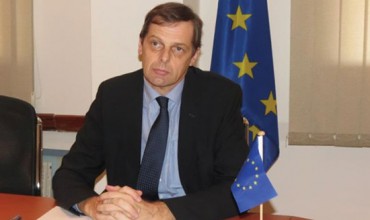
THE European Union (EU) has committed more than half of the €234 million fund meant to finance social sectors, governance and institutional building, with the bloc and government agreeing on the implementation objectives, an envoy has said.
VICTORIA MTOMBA
The move represents a big step in funding social services, especially as government is currently struggling to raise money for basic national needs.
EU ambassador to Zimbabwe Phillippe van Damme told Standardbusiness that the bloc had so far committed €160 million of the €234 million under the National Indicative Programme (NIP).
“We have agreed with government on the projects to be implemented. Out of the €160 million, we have signed contracts for €100 million for over three to four years,” he said.
“Last year, we disbursed €70 million. The biggest envelope went to the health sector and other activities basically implemented by non-governmental organisations to help rural people and improve their livelihoods, climate resistance and forest harvesting.”
The EU envoy said the health sector took around €35-40 million from the fund and this was channelled through United Children Fund, a trust fund that manages the health transition fund.
The project works throughout the country on primary health from mother to child.
- Chamisa under fire over US$120K donation
- Mavhunga puts DeMbare into Chibuku quarterfinals
- Pension funds bet on Cabora Bassa oilfields
- Councils defy govt fire tender directive
Keep Reading
In 2016, NIP programmes will get €60 million, van Damme said.
Last year, Zimbabwe and the EU agreed to the 11th European Development Fund’s NIP which runs up to 2020.
The EU and government also signed a €40 million agreement for livestock production in 2015.
The livestock programme included poultry, beef sector and feed stock, van Damme said, adding that the implementing agencies would link small-scale farmers with the market intermediaries.
In 2015, the EU programmes focused more on health and resilience, agriculture and constitutional support.
In 2016 the programmes will focus on governance portfolio and institutional building.











